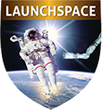Course Details
Course Summary
On December 11, 2017, President Trump signed a directive to NASA to send Americans to the Moon, Mars, and beyond. These ventures will involve private enterprise in manufacturing and flying launch components and supplying the needs of astronauts. But the extreme distances, increased autonomy, and communication delays that will characterize human missions beyond the Earth’s neighborhood will introduce astronauts to additional psychological, psychiatric, and interpersonal stressors that have never before been experienced. In addition, several businesses have made exciting progress with their plans to launch paying tourists into Earth orbit using their own space vehicles. But how well will ordinary citizens deal with the psychosocial ramifications of these new private space ventures? Professor Nick Kanas has studied many of these issues since 1969 and was a NASA-funded Principal Investigator for over 15 years studying the psychological and interpersonal characteristics of astronauts and cosmonauts working on the Mir and International Space Stations. In this course, he will review what we know from his research and the research of other investigators concerning psychological, psychiatric, and interpersonal issues during on-orbit space missions. Professor Kanas will then extrapolate this knowledge to space tourism and cis-lunar missions.
Course Materials
Each attendee receives a copy of the presentation and Professor Kanas’ book: Humans in Space: The Psychological Hurdles.
Who Should Attend
• Space industry executives, decision makers, analysts, and consultants
• Space mission designers and operations managers
• Senior professionals working in related fields
• Space policy writers and lawmakers
• Astronauts and potential space tourists
• Any professional or student wishing to gain insight into psychological and interpersonal issues related to human space missions
• Members of the public interested in human space missions
What You Will Learn
- Psychophysiological, psychological and interpersonal stressors in human space missions
- Personality and cultural issues during human space missions
- Psychiatric issues and positive effects of human space missions
- Interpersonal issues during human space missions
- Countermeasures and family issues during human space missions
- Psychosocial issues related to space tourism
- Psychosocial issues related to human missions to the Cis-Lunar neighborhood
Course Outline
- Psychophysiological Issues During On-orbit Space Missions—Day 1
- Definition of Stressor vs Stress
- Physical Stressors and Physiological Stress in Space
- Psychological and Interpersonal Stressors in Space
- Sources of Evidence: In-flight and Simulation
- Personality and Cultural Issues During On-orbit Space Missions—Day 1
- Psychological Stress in On-orbit Space Habitats
- Personality Issues
- Culture and Language
- Psychiatric Issues and Positive Effects of On-orbit Space Missions—Day 1
- Psychiatric Issues
- Salutogenesis and the Overview Effect
- Positive Effects of Space Travel
- Interpersonal Issues During On-orbit Space Missions—Day 2
- Interpersonal Issues
- Interpersonal Studies Involving Astronauts and Cosmonauts
- Kanas Mir and ISS Studies
- Countermeasures and Family Issues During On-orbit Space Missions—Day 2
- Selection
- Pre-launch Training
- Mission Monitoring
- In-flight Support
- Post-mission Readaptation
- Family Issues
- Space Tourism and Cis-Lunar Missions—Day 2
- Appeal, Costs, and Legal Issues of Space Tourism
- Suborbital Tourist Missions
- Orbital Tourist Missions
- Cislunar Missions: NASA/Artemis, Others
Instructor
Nick Kanas, M.D., is an Emeritus Professor of Psychiatry at the University of California, San Francisco (UCSF). He trained at Stanford University, UCLA Medical School, University of Texas Medical Branch (Galveston), and UCSF. At UCLA in 1969, he was a teaching assistant for a NASA space biology program and participated in NASA-funded sleep research. Following a fellowship at NASA/Johnson Space Center in 1970, he was the senior author of the 1971 monograph Behavioral, Psychiatric, and Sociological Problems of Long-Duration Space Missions (NASA TM X-58067). After serving in the USAF as a psychiatrist, he joined the faculty at UCSF and the affiliated San Francisco VA Medical Center in 1977. He has been the principal investigator (PI) of space-related research since the late 1980s, including a study of people working in the European Space Agency HUBES space simulator. For over 15 years thereafter, he was an NSBRI and NASA-funded PI, doing psychological and interpersonal research with astronauts and cosmonauts on the Mir and International Space Stations. He is a member and former trustee of the International Academy of Astronautics. In 1999, he received the Aerospace Medical Association Raymond F. Longacre Award for Outstanding Accomplishment in the Psychological and Psychiatric Aspects of Aerospace Medicine. In 2008, he received the International Academy of Astronautics Life Science Award. He has over 218 publications, including (with Prof. Dietrich Manzey) Space Psychology and Psychiatry (in its 2nd edition) and Humans in Space: The Psychological Hurdles; both books were given International Academy of Astronautics Life Science Book Awards. He also has published three science fiction novels. In 2017, he was invited by the Buzz Aldrin Space Institute to participate in Mars mission workshops, and he was invited as a visiting professor to give a series of lectures on space psychology to students at Beihang University, Beijing, China. For over 20 years, he has chaired the paper session on Behaviour, Performance and Psychosocial Issues in Space for the yearly International Astronautical Congress, and he has given papers at several Humans in Space Symposia. He continues to write and consult in the area of space psychology.
